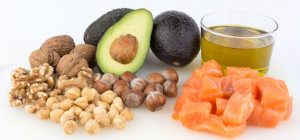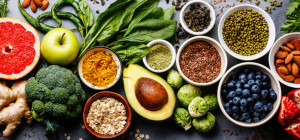 The middle years can bring about numerous changes, one of which is a slow metabolism. If you’ve been asking yourself “how to increase metabolism after 40“, you’re not alone. This decrease can lead to weight gain and fatigue, but don’t despair. The answer lies in your nutrition. With the right strategies, you can rev up that metabolic engine, all while enjoying the foods you love.
The middle years can bring about numerous changes, one of which is a slow metabolism. If you’ve been asking yourself “how to increase metabolism after 40“, you’re not alone. This decrease can lead to weight gain and fatigue, but don’t despair. The answer lies in your nutrition. With the right strategies, you can rev up that metabolic engine, all while enjoying the foods you love.
The Power of Protein
Protein is your metabolism’s best friend. As a macronutrient, it requires the most energy to digest – a phenomenon known as the thermic effect of food. By increasing your protein intake, you give your metabolism a natural boost. The American Journal of Clinical Nutrition has shown that high-protein diets can increase your metabolic rate by 15-30%. Plus, protein keeps you full for longer, preventing overeating.
Hydrate to Elevate
Water isn’t just essential for life, it’s also crucial for a healthy metabolism. The Journal of Clinical Endocrinology and Metabolism found that drinking 500ml of water increases the metabolic rate by 30% for both men and women. Keep a water bottle handy, and remember – if you’re thirsty, you’re already dehydrated.
Fiber for the Win
Fiber, particularly soluble fiber, contributes to metabolic health by feeding the beneficial gut bacteria, leading to improved digestion and greater energy expenditure. Foods like oats, fruits, vegetables, and legumes are rich in this beneficial nutrient. A study in The American Journal of Clinical Nutrition found that a higher fiber intake was associated with a lower risk of gaining weight and body fat, indicating a connection with metabolism.
Don’t Fear the Fat
Healthy fats, such as those found in avocados, nuts, seeds, and fatty fish, are a critical component of a metabolism-friendly diet. While fats have more calories per gram than proteins or carbohydrates, they can keep you satiated and prevent overeating. Plus, these fats promote the absorption of fat-soluble vitamins that play a role in energy production.
Sip on Green Tea
Green tea, known for its potent antioxidants, can also aid your metabolism. It contains a compound known as EGCG, which has been found to boost metabolic rate and promote fat burning. Incorporate a cup or two into your daily routine for the best results.
Spice Things Up
Spices aren’t just for flavor. Many, like cayenne pepper, ginger, and black pepper, can rev up your metabolism too. Their thermogenic properties increase your body temperature, leading to more calories burned. Plus, they add a kick to your meals!
Harness the Power of Whole Foods
The foods you eat can have a big impact on your metabolism. Processed foods, which are often high in added sugars and unhealthy fats, can slow down your metabolism, leading to weight gain and other health problems. On the other hand, whole foods – those that are minimally processed – can boost your metabolism. Whole foods like fruits, vegetables, whole grains, and lean proteins are rich in essential nutrients that your body needs to function optimally. They are also more filling than processed foods, meaning they can help you stay satisfied longer and prevent overeating. Eating a diet that’s primarily made up of whole foods can help keep your metabolism humming along.
Understanding Your Metabolism
Your metabolism isn’t just about burning calories. It’s about how your body uses the energy from the food you eat to power all of its processes. Everything from your heartbeat to your brain function is powered by your metabolism. Understanding this can help you make healthier choices. For example, choosing foods that are high in nutrients, rather than just low in calories, can give your metabolism a real boost. Nutrient-rich foods provide your body with the energy it needs to function at its best, while also helping to maintain a healthy weight.
While diet plays a significant role in boosting metabolism, remember that it’s just one piece of the puzzle. Regular exercise, adequate sleep, and stress management also contribute to metabolic health. So, while you’re planning your meals, also plan to move your body, prioritize rest, and find joy in everyday life. Your metabolism (and your overall health) will thank you for it.
Finally, it’s important to remember that everyone’s metabolism is different. What works to boost one person’s metabolic rate might not work for another. It’s all about finding the right balance for your body and your lifestyle. Remember that it’s always a good idea to talk to a healthcare professional before making any major changes to your diet or lifestyle. They can help guide you on the best path to a healthier metabolism and a healthier you.




